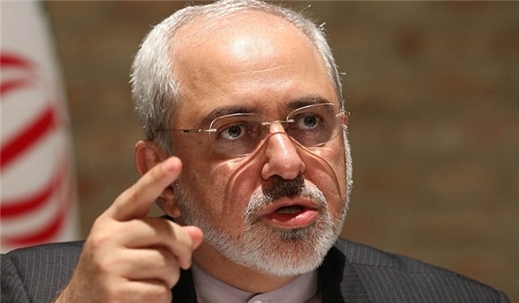Iranian Foreign Minister Mohammad Javad Zarif said the US government is hesitating to defeat the Daesh [the Arabic acronym of IS] terrorist group because such a move may contradict the interests of its regional allies.
He made the comments in a meeting in New York organized by University of Denver’s International Studies Center prior to his departure for Tehran, after attending United National General Assembly session.
On the nuclear deal between Iran and P5+1, he said that the outcome of the agreement will be either a win-win or lose-lose situation rather than one side losing and the other winning.
“This is what is expected from other conflicts, from Syria to Iraq and Yemen,” he added, “It may seem speculation to some, but we managed to do it in the nuclear issue and made a success.”
Calling for a change in the manner of dealing with regional crises, Zarif said, “The assumption that there would be a single winner in dealing with region’s unrests has to be put aside. Some regional countries may have such an assumption, but it is a myopic belief that will end up with everyone’s failure.”
Warning that extremism in the Middle East will not be limited to the geographical borders of Syria or Iraq and that it is a common threat to the world, he said, “In countering extremism, violence, and terrorism, one has to take into account every aspect and to deal with the root causes.”
Referring to the support for Wahabbi extremists by some regional states, Zarif said, “As long as certain countries and sections of their population support any group out of the conception that it can weaken Iran, they will fail in seriously dealing with the threat.”
He said Iran is ready to cooperate with regional countries so long as they will become aware of the threats posed by Daesh.
Also referring to the fact that Daesh terrorists who commit crimes such as beheading their captives are speaking in fluent English and French, he said, “Most of the terrorists are young people who were brought up in western countries and later turned to terrorists.”
The Iranian top diplomat raised questions about the source of financial support for Daesh and asked, “Who is buying oil from this group or is providing financial funds and equipment to it?”
“When Iran was under sanctions and if it sold one barrel of oil beyond the limit set for it, it was considered a redline and all buyers and banks that provided transaction facilities were fined. Now, one can ask if such measures were applicable in the case of Iran, how come they cannot be employed to control the areas under Daesh control.”
On the crisis in Syria, Zarif called for a comprehensive solution so that political reform and an end of clashes can be achieved.
He cautioned that the fight against Daesh will not terminate in the near future and said a political process should start in line with efforts to end violence.
Last year, he added, when the US launched air raids on Syria without permission of the government and people of Syria, no one was surprised.
He said Russia’s intervention in Syria should not be an issue either, because it is one of UN Security Council members and is entitled to the same rights and responsibilities that the US enjoys.
“The only difference is that the Russians embarked on the attacks based on the request of the government of Syria,” he said.
